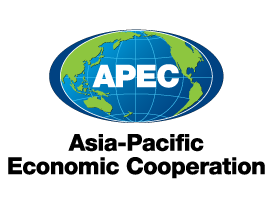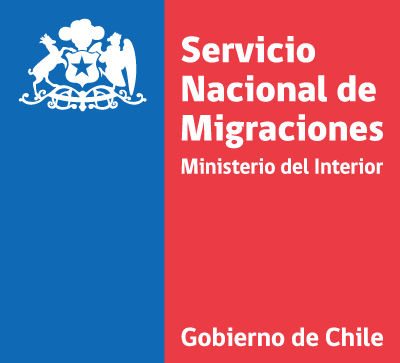Chile has signed various treaties with other countries and has subscribed to various international agreements and conventions, which in many cases contain important legal frameworks or content directly related to the immigration situation. Below we present all of those that may be of interest.
Find all the information about:
Residence agreement between Mercosur Member States, Bolivia and Chile
Within the framework of the “Montevideo Declaration regarding the Agreement on Residence for Nationals of the States Parties of Mercosur, Bolivia, and Chile”, as of 12-04-09 nationals of Argentina, Bolivia, Brazil, Paraguay, and Uruguay, Residencia Temporal permits will be granted to those who meet the requirements.
To learn how to apply, check out the principle of international reciprocity on Mercosur.
Working Holiday agreements and similar programs in Chile
These agreements result from a bilateral agreement between countries and allow the foreigner who requests it to live and work in Chile for a limited period of time.
- Find out which countries offer Working Holiday with Chile and what their application requirements are.
- Apply from your country on the SERMIG’s Digital Procedures Portal.
Asia-Pacific Economic Cooperation Forum - APEC Card (ABTC)

The Asia Pacific Economic Cooperation (APEC) is one of the most important international forums for facilitating economic growth, cooperation, trade, and investment in the Asia Pacific region.
Which countries are members of the Forum and allow the use of the APEC Business Travel Card (ABTC)?
The 21 countries that make up the Forum and allow the use of the Tarjeta de Viaje para Personas de Negocios (ABTC, Business Travel Card) are:
- Australia;
- Brunei Darussalam;
- Canada;
- Chile;
- People’s Republic of China;
- Hong Kong, China;
- Indonesia;
- Japan;
- Republic of Korea;
- Malaysia;
- Mexico;
- New Zealand;
- Papua New Guinea;
- Peru;
- Republic of the Philippines;
- Russian Federation;
- Singapore;
- China Taipei;
- Kingdom of Thailand;
- United States of America;
- Socialist Republic of Vietnam.
Who can apply for the ABTC?
 This card can be requested in Chile by business persons who have Chilean citizenship or foreigners who have been granted Chilean citizenship, through the Business Associations that collaborate with the Government in this process, even if they are not members of these. These organizations will forward the application and background of the interested applicant to the Servicio Nacional de Migraciones (SERMIG), which will be in charge of processing it for the other economies participating in the system.
This card can be requested in Chile by business persons who have Chilean citizenship or foreigners who have been granted Chilean citizenship, through the Business Associations that collaborate with the Government in this process, even if they are not members of these. These organizations will forward the application and background of the interested applicant to the Servicio Nacional de Migraciones (SERMIG), which will be in charge of processing it for the other economies participating in the system.
What are the requirements to obtain the ABTC?
- To be Chilean.
- Possess a valid Chilean passport, ordinary or official.
- Not to have been prosecuted or convicted for offenses that the law qualifies as a felony or misdemeanor.
- Be a business person, i.e., engaged in or related to the trade of goods, the rendering of services, or the conduct of productive economic, financial, or investment activities, and who is required to travel for short periods within the Asia Pacific region for these purposes; or
- To be a government official, performing functions related to APEC Forum activities.
- Not to have a negative commercial record.
What are the benefits of ABTC?
To make short-term business trips to countries in the Asia-Pacific region that are members of APEC, without the need for a visa. In addition, ABTC holders can use the special entry and exit lanes at the main airports of APEC member countries.
How do I complete the ABTC application and what documents do I need to accompany it?
- You can download the form application by clicking on the following button::
- Complete the Virtual ABTC Application using a text editor such as Microsoft Word, then print it and put your signature inside the box.
- Color photograph, passport size (4 x 4 cm.)
- Photocopy of valid passport when applying for the card.
- Certificado de antecedentes (Criminal record certificate) for special purposes issued by the Servicio de Registro Civil e Identificación. This document must be updated as of the date of submission.
-
Business persons must submit the following documents:
- Certificate issued by any of the business associations that collaborate with the Government in the process of qualification of business persons for these purposes, in which this is confirmed; or the documentation that allows certifying it.
- Proof of payment of the ABTC at the respective participating chamber or association.
- In the case of government officials related to APEC activities, they must certify such status through a certificate issued by the Subsecretaría de Relaciones Económicas Internacionales (SUBREI, Agency of International Economic Relations, formerly DIRECON), of the Ministry of Foreign Affairs.
Where can I apply for the ABTC or its extensions?
The ABTC application for business persons is submitted to the business associations participating in this system:
- Asociación de Exportadores de Productos Manufacturados (ASEXMA, Association of Exporters of Manufactured Products), in Santiago.
- Cámara Nacional de Comercio y Turismo (CNC, National Chamber of Commerce and Tourism), regional headquarters and in Santiago.
- Sociedad de Fomento Fabril (SOFOFA, Chilean Association of Industrial Companies), regional headquarters and in Santiago.
- Cámara Chileno-China de Comercio Industria y Turismo (CHICIT, Chilean-Chinese Chamber of Commerce, Industry and Tourism).
- Cámara de Comercio de Santiago (CCS, Santiago Chamber of Commerce).
- Cámara de Comercio Australiana (AUSCHAM, Australian Chamber of Commerce).
In the case of government officials involved in APEC activities, they should make their requests through the Subsecretaría de Relaciones Económicas Internacionales (SUBREI, Agency of International Economic Relations, formerly DIRECON), of the Ministry of Foreign Affairs.
Remember to apply for your extension in advance!
To expedite your process, please apply for an extension of your APEC card six months before its expiration date.
The documents required are the same as in the first application and are submitted to the corresponding business associations.
Is there any cost to obtain an APEC Card?
The Ministry of the Interior and Public Safety does not charge for the APEC Card. The Business Associations in charge of processing the card charge an administrative fee of approximately US$100 for the issuance of the business person's certificate, which is a requirement to apply for the benefit.
How long is the ABTC valid?
The card is valid for the duration of the holder's passport, with a maximum of five years from the date of issue of the ABTC. If the applicant's passport expires earlier, the validity of the card will correspond to that term.
How long is the period of stay allowed in each member country of the APEC Card system?
The period of stay allowed in the countries that are members of the ABTC system is as follows:
| Country | Period of stay | Country | Period of stay |
| Australia | 90 days | New Zealand | 90 days |
| Brunei | 90 days | Papua New Guinea | 60 days |
| Korea | 90 days | Peru | 90 days |
| Philippines | 59 days | People's Republic of China | 60 days |
| Hong Kong | 60 days | Russian Federation | 60 days |
| Indonesia | 60 days | Singapore | 60 days |
| Japan | 90 days | Taiwan | 90 days |
| Malaysia | 60 days | Thailand | 90 days |
| Mexico | 90 days | Vietnam | 60 days |
Important information about the U.S. and Canada
The United States of America and Canada are transitional members of the APEC card system, which means that they do not exempt cardholders from visa applications, however, cardholders may use the priority immigration lines at their major international airports.
Approval from the United States and Canada is not required for this benefit, but approval from Australia is necessary.
What authorities are involved in the ABTC granting process?
The APEC card application is reviewed by SERMIG to determine if the required documents are attached and if the above requirements are met. The application is then sent to each of the economies that are part of this system, which is approved or refused by the competent immigration authority in each one of them, which reserves the right to reject an application without stating the reason.
Does the Chilean immigration authority have any influence on the approval of the cards by the other APEC economies?
The Chilean immigration authority does not interfere in the approval of APEC card applications of our nationals by the other immigration authorities of each of the member countries of the APEC card system. The immigration authorities resolve such applications following their current immigration regulations and reserve the right to refuse an application without cause.
How long does it take to obtain the APEC card from the moment it is received at the Servicio Nacional de Migraciones?
It takes approximately two months. After the respective analysis, Chile approves and automatically the APEC platform will send an email to the applicant indicating how to access the ABTC App and download the Virtual Card.
Virtual Card
As of June 1, 2020, the change from Physical to Virtual Card was made, therefore users can download their virtual card directly to their cell phone once Chile has approved their APEC application.
It should be noted that the change of card has meant greater ease of travel for businessmen, although always taking into consideration that other economies take time to analyze and approve the application.
What is the possibility of obtaining a virtual card for 5 economies?
This alternative allows you to resolve your application in a shorter period of time, choosing a maximum of five (5) economies for the approval of your APEC card. The card is issued virtually after Chile gives its approval, which is subsequent to the analysis and approval by the chosen economies.
This does not prevent the card's coverage from being extended to more member countries at a later date, a situation that the individual can check directly in the ABTC App on his or her mobile device.
The economies analyze priority applications more quickly, but this does not mean that they will be accepted. For them, the general approval rule is also applicable.
Remember that you can apply for your ABTC for 5 economies
Now you can get your APEC Card in less time by requesting fast approval for five economies of your interest. If you require more information, you can read the instructions on the Application Form.
Can I use the card if I change my passport?
Yes, as long as you have previously informed the Servicio Nacional de Migraciones of the change of passport since the new travel document must be informed and registered by the other APEC economies.
In addition, it is convenient to apply for the APEC card, with a valid and recently renewed passport.
If I travel with family members, can they use the preferential access for APEC cardholders?
APEC cardholders can only use the exclusive lanes with one family member and no more. This standard is reported to the International Police (PDI's division) through an oficio (administrative act).
What are the responsibilities of the ABTC holder?
- Must have a valid passport.
- Must have a virtual card with the approval of the economy you are entering.
- Must inform a change of passport.
- Must apply for a card and its renewal 6 months in advance.
Contact point at SERMIG
Your questions about the APEC Business Travel Card can be directed to Ms. Ana María Roa, Sección Jurídica (Legal Section):
Temporary entry chapters in Free Trade Agreements
Within the framework of the Treaties and Free Trade Agreements (FTA) signed by Chile, the following are the chapters for temporary entry of business people, which enable them to apply for a residence permit in our country.
FTA signed in 2008. Read specific information on temporary entry of business persons in Chapter 13 of the treaty.
The agreement entered into force on January 25, 2022. Read specific information on temporary entry in Chapter 7 of the agreement.
FTA with Application for Residence Permit Procedures.
Agreement that includes specific information on temporary entry of business persons in Chapter 14.
Agreement signed in November 2006. Read specific information on temporary entry in Chapter 11.
Tratado con información específica sobre entrada temporal en Capítulo 13.
Treaty that entered into force on January 1, 2004, which includes specific information in Chapter XIV – “Entrada Temporal de Personas de Negocios”.
Agreement that includes specific information on temporary entry of business persons in Chapter 13.
Agreement that includes specific information on temporary entry of business persons in Chapter 13.
Other agreements
Agreements signed with regard to the transit of persons
These agreements facilitate the transit through Chile of people from Ecuador, Paraguay, Argentina, Uruguay, Colombia, and Brazil. The conditions and requirements for each country are set out in the following document:
In addition, Decree No. 279 of the Ministry of Foreign Affairs is in force, which enacts with the Republic of Peru, the "Acuerdo para el Ingreso y Tránsito de Nacionales Chilenos y Peruanos en Calidad de Turistas con Documento de Identidad" (Agreement for the entry and transit of Chilean and Peruvian nationals as tourists with an identity document).
Social security treaties and agreements signed with Chile
The purpose of signing these agreements is that the citizens of the States Parties may benefit from the insurance periods contributed in both countries or recognized by them, thus maintaining continuity in their pension history, which will ultimately allow them to enjoy old age, disability, and survival pensions in one or both States, provided they meet the domestic requirements of the respective pension systems.
Find more information in the Subsecretaría de Previsión Social (Chilean Social Welfare Agency).



